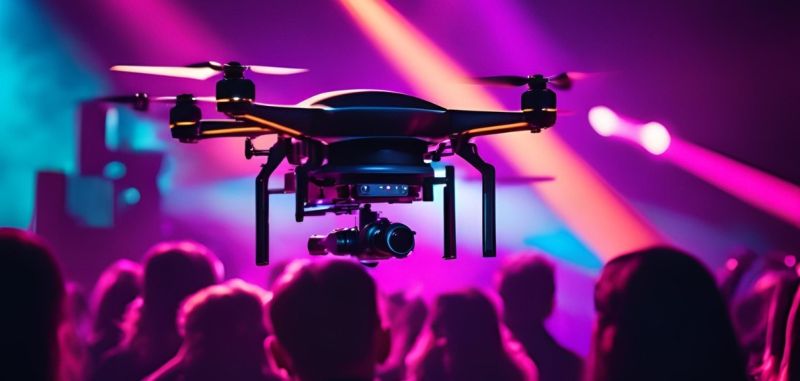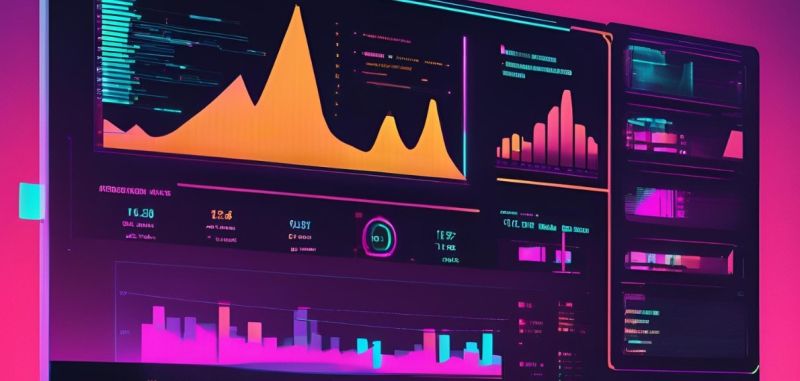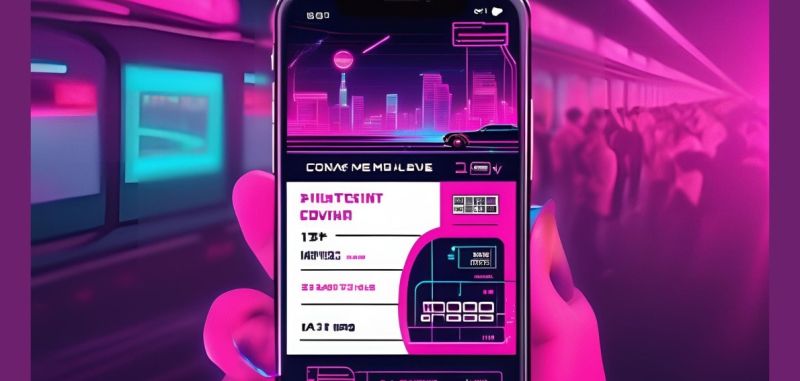As concert venues look ahead to 2025, the landscape of attendee management is rapidly evolving.
The global event industry is projected to expand to over $1.5 trillion by 2028, highlighting its robust growth and economic significance. With the advent of new technologies, shifting audience expectations, and an increasing emphasis on personalized experiences, concert venues must adapt their management strategies to stay competitive and deliver unforgettable events.
Effective attendee management is key to ensuring smooth operations, maximizing revenue, and fostering positive relationships with fans. Here’s a look at the essential elements of attendee management for concert venues in 2025.
Event Trends and Technologies in the Events Industry

The events industry is in a constant state of flux, with new trends and technologies emerging each year that reshape how events are planned, executed, and experienced. As we look ahead to 2025, several key trends are set to dominate the landscape, offering exciting opportunities for event planners and attendees alike.
Artificial Intelligence: AI is revolutionizing the event experience by providing personalized interactions and recommendations. From customized agendas to tailored networking suggestions, AI-driven tools can analyze attendee data to create a more engaging and relevant experience. For instance, AI chatbots can assist with real-time queries, while machine learning algorithms can suggest sessions or activities based on individual preferences.
Virtual and Augmented Reality: The integration of virtual and augmented reality is transforming how attendees interact with events. Virtual reality can create immersive environments, such as virtual meeting rooms or concert experiences, allowing remote attendees to feel as if they are part of the action. Augmented reality, on the other hand, can enhance in-person events by overlaying digital information onto the physical world, offering interactive games or real-time information about performers and schedules.
Social Media Integration: Social media continues to play a crucial role in enhancing event experiences. Live streaming on platforms like Instagram and Facebook allows attendees to share their experiences in real-time, while social media walls display live feeds and interactions, fostering a sense of community. Event-specific hashtags and photo contests can further amplify engagement and visibility, making the event more interactive and memorable.
Sustainability and Inclusivity: As environmental concerns grow, so does the emphasis on sustainable practices within the events industry. Zero-waste events, carbon-neutral initiatives, and eco-friendly merchandise are becoming standard practices. Additionally, there is a stronger focus on accessibility and inclusivity, with features like AI-powered real-time captioning, sign language interpreters, and wheelchair-accessible venues ensuring that events are welcoming to all.
By staying ahead of these trends and incorporating the latest technologies, event planners can create more dynamic, engaging, and inclusive experiences that resonate with modern audiences.
Breaking the Mold with New Formats
The events industry is constantly evolving, and event planners are always on the lookout for innovative ways to break the mold and create unique experiences for their attendees. One effective strategy is incorporating new formats into your event planning. This can include interactive workshops, immersive experiences, and even virtual reality elements. By thinking outside the box and experimenting with new formats, event planners can craft events that are not only memorable but also impactful.
Incorporating new formats into your event strategy can significantly boost event attendance and engagement. Offering something fresh and different can attract a broader range of attendees and keep them engaged throughout the event. Additionally, these new formats provide unique opportunities for sponsors and exhibitors to connect with attendees in more meaningful ways.
Some popular new formats that event planners are using include:
- Interactive Workshops: These hands-on sessions allow attendees to learn by doing, rather than just listening to a presentation. They foster engagement and provide practical takeaways.
- Immersive Experiences: Utilizing technology and design to create an immersive environment that attendees can interact with, these experiences can leave a lasting impression.
- Virtual Reality Elements: VR can be used to create interactive and immersive experiences that attendees can engage with, offering a novel way to experience the event.
By integrating these innovative formats, event planners can create dynamic and engaging events that stand out in the competitive events industry.
Leveraging Advanced Technology for Seamless Entry and Experience

One of the most important aspects of attendee management in 2025 is efficiently handling event registrations and streamlining the entry process. Gone are the days of long lines and paper tickets. Technology has completely transformed how concertgoers enter the venue and interact with the event from start to finish.
Mobile Ticketing and Digital Wallets: Mobile tickets, digital wallets, and QR codes have replaced traditional paper tickets. These technologies provide concertgoers with a fast, contactless entry process, ensuring smoother access to the venue and reducing wait times.
Facial Recognition for Quick Entry: To enhance both security and convenience, facial recognition technology is becoming increasingly popular at concert venues. This allows for a seamless check-in process without the need for physical tickets, further minimizing entry delays and ensuring better security.
AI-Powered Security and Crowd Control: AI-powered cameras and sensors can track crowd movements in real-time, helping venue staff predict potential congestion and manage crowds more effectively. This technology enhances safety, reduces bottlenecks, and improves overall attendee flow.
By embracing these advanced technologies, concert venues can significantly enhance the attendee experience and increase operational efficiency, giving concertgoers a hassle-free start to their event.
Event Management Software and Tools for Event Planners

In the fast-paced world of event planning, having the right tools at your disposal is crucial for executing successful events. As we move into 2025, several event management software and tools stand out for their ability to streamline planning, enhance attendee engagement, and ensure seamless event execution.
vFairs: vFairs is an all-in-one event management platform that caters to virtual, physical, and hybrid events. It offers a comprehensive suite of solutions, including virtual booths, live streaming, and interactive features that enhance attendee engagement. Its versatility makes it a top choice for event planners looking to create immersive experiences.
RingCentral (formerly Hopin): Known for its robust live streaming capabilities and customizable event landing pages, RingCentral is a popular choice for managing both virtual and hybrid events. Its engagement tools, such as polls and Q&A sessions, help keep attendees involved and connected throughout the event.
The increasing significance of virtual events in modern event planning cannot be overstated. As 81% of event managers project to host virtual events, these formats are now permanently integrated into event management strategies, catering to diverse audiences and enabling cost-effective solutions.
Ticket Fairy: Ticket Fairy offers intelligent event ticketing and marketing solutions for all types of events, leveraging inbuilt systems to handle complex event management requirements. Its all-in-one integrations and intuitive organizer dashboard make it a perfect choice for evolving event needs, along with its seamless and robust real-time analytics and data tools.
Cvent: Cvent is a comprehensive event management platform that offers a wide range of solutions, from event registration and ticketing to marketing and analytics. Its powerful integrations and user-friendly interface make it a go-to tool for event planners aiming to streamline their workflow and enhance event efficiency.
Whova: Whova offers a robust set of features, including speaker management, in-depth analytics, and attendee engagement tools. Its mobile app enhances the attendee experience by providing real-time updates, interactive maps, and networking opportunities.
Additional Tools: Other notable event management tools include Timely, which facilitates event creation and listing; Airmeet, known for its powerful virtual and hybrid event solutions; and GoTo Webinar, a popular platform for hosting webinars with comprehensive event management features.
When choosing the right event management software, event planners should consider factors such as ticketing solutions, event landing pages, email marketing automation, mobile apps for attendees, and integration capabilities. Reading reviews and weighing the pros and cons of each tool can help ensure that the chosen software aligns with the specific needs and goals of the event.
By leveraging these advanced event management tools, event planners can enhance their efficiency, improve attendee engagement, and ensure the success of their events in 2025 and beyond.
Personalized Experiences Through Data and Analytics

In 2025, concertgoers are expecting more personalized experiences. Event attendees play a crucial role in creating these personalized and engaging experiences, and data analytics can significantly enhance communication and networking for them. Data analytics allows concert venues to tailor services, marketing, and offerings to individual attendee preferences, boosting satisfaction and loyalty.
Targeted Marketing and Recommendations: By analyzing ticket purchase data and audience behavior, venues can create personalized marketing campaigns that speak directly to the preferences of attendees. For example, you can recommend upcoming shows based on past ticket purchases or offer exclusive access to VIP events or presales for frequent concertgoers.
Dynamic Pricing and Customized Packages: Use data-driven insights to offer dynamic pricing, adjusting ticket costs based on demand, seat selection, or fan loyalty. VIP experiences, backstage passes, and merchandise bundles can also be customized to create a truly bespoke concert experience for loyal fans.
Behavior-Driven Engagement: Analytics can help predict attendee behavior throughout the event, allowing venues to send personalized notifications via mobile apps. For example, a fan who regularly purchases merchandise might receive an alert about limited-edition concert items, enhancing the attendee experience while driving additional revenue.
By leveraging data to create personalized experiences, concert venues can build stronger connections with their audiences and foster repeat attendance.
Experiential Marketing Integration
Experiential marketing is a key trend in the events industry, and its importance is only set to grow. This approach involves creating immersive and interactive experiences that allow attendees to engage with a brand or product in a more meaningful way. By integrating experiential marketing into your event strategy, you can create memorable experiences that resonate with attendees long after the event is over.
Experiential marketing can be utilized in various ways, including:
- Brand Activations: Interactive experiences that allow attendees to engage directly with a brand or product, creating a deeper connection.
- Product Launches: Events designed to introduce a new product or service, often featuring hands-on demonstrations and interactive elements.
- Sponsorship Activations: Experiences designed to promote a sponsor or exhibitor, providing them with a platform to engage with attendees in a unique way.
Some popular methods to integrate experiential marketing into your event strategy include:
- Creating Immersive and Interactive Experiences: Use technology and design to create environments that attendees can engage with, making the experience more memorable.
- Utilizing Technology: Incorporate elements like augmented reality or virtual reality to create interactive experiences that captivate attendees.
- Providing Unique Experiences: Offer something that attendees will remember, such as exclusive access to new products or behind-the-scenes tours.
By focusing on experiential marketing, event planners can enhance the overall event experience, making it more engaging and impactful for attendees.
Optimizing Crowd Management and Safety

Ensuring the safety and comfort of concertgoers is paramount for any venue, and effective crowd management strategies are essential for successful events. Event managers play a crucial role in utilizing advanced tools and strategic planning to ensure effective crowd management and safety. With larger audiences expected in 2025, crowd control and safety management will require innovative solutions to keep attendees safe while minimizing disruption.
Real-Time Crowd Monitoring: Implementing crowd monitoring systems that use sensors and AI can provide real-time insights into crowd density, helping staff anticipate potential congestion points. This allows for proactive interventions before issues arise, ensuring smooth movement and reducing the risk of overcrowding.
Clear Signage and Navigation Systems: Effective signage and wayfinding tools, both digital and physical, will guide attendees to their seats, restrooms, food stalls, and exits, minimizing confusion and frustration. Mobile apps with interactive venue maps can enhance this experience by providing turn-by-turn navigation.
Comprehensive Security Measures: In 2025, security is a top priority for concert venues. From bag checks to enhanced screening processes, concert venues must ensure the safety of all attendees. Using technologies like metal detectors, surveillance cameras, and biometric scanning can create a secure environment while maintaining a smooth entry process.
By integrating advanced crowd management tools and security protocols, concert venues can ensure a safe and enjoyable experience for all attendees, mitigating risks and maintaining a positive atmosphere throughout the event.
Crisis Management and Communication
Crisis management and communication are critical components of any event strategy. In the event of a crisis, having a well-thought-out plan in place is essential for communicating effectively with attendees, sponsors, and exhibitors. A robust crisis management plan can help mitigate risks and ensure that the event runs smoothly, even in the face of unexpected challenges.
When developing a crisis management and communication plan, consider the following key elements:
- Identifying Potential Risks: Conduct a thorough risk assessment to identify potential issues that could arise during the event. Develop strategies to mitigate these risks.
- Establishing a Communication Plan: Create a clear communication plan that includes regular updates and consistent messaging. Ensure that all stakeholders are informed and know what to expect.
- Providing Clear Instructions: In the event of a crisis, provide attendees with clear instructions and guidance. This can help manage the situation effectively and ensure the safety of all participants.
Some popular tools and platforms for crisis management and communication include:
- Crisis Management Software: These tools offer a range of features for managing and communicating during a crisis, helping event planners stay organized and responsive.
- Emergency Alert Systems: These systems allow event planners to quickly and easily communicate with attendees in the event of a crisis, ensuring that important information is disseminated promptly.
- Social Media: Platforms like Twitter and Facebook can be used to provide real-time updates and communicate with attendees during a crisis.
By having a comprehensive crisis management and communication plan in place, event planners can ensure that they are prepared to handle any situation that arises, maintaining the safety and satisfaction of all attendees.
Enhancing Communication and Real-Time Engagement

Effective communication is essential for managing attendees before, during, and after the event. Event professionals engage with new technologies and strategies to enhance communication and real-time engagement during events. In 2025, real-time engagement through digital platforms is critical for ensuring attendees feel informed, connected, and valued.
Mobile Apps for Event Communication: Concert venues can offer mobile apps that provide real-time event updates, schedule changes, and emergency alerts. These apps can also offer live chat features to connect attendees with venue staff, answer questions, and resolve issues quickly.
Push Notifications for Engagement: Push notifications sent through the event app can keep attendees informed about important updates, such as delays, special announcements, or exclusive offers. Personalized messages based on attendee preferences can also increase engagement and provide added value to the concert experience.
Interactive Engagement During the Show: Concertgoers love being part of the action. Interactive features such as live voting for encore songs, fan shout-outs, or exclusive social media challenges can elevate the overall concert experience. Encouraging attendees to share their moments on social media with event hashtags or photo contests can amplify event visibility and create a sense of community.
By providing seamless communication channels and interactive experiences, concert venues can enhance attendee satisfaction and create a more immersive and connected event.
Sustainability and Eco-Friendly Attendee Management

As sustainability becomes a more significant concern for both consumers and event organizers, concert venues will need to prioritize eco-friendly practices in their attendee management strategies. Emphasizing sustainability in shaping future events will be crucial for attracting environmentally conscious attendees. Concertgoers in 2025 are likely to be more environmentally conscious, and venues that embrace sustainability will attract a growing audience.
Zero-Waste Policies: Implementing waste reduction measures such as recycling stations, compostable products, and minimizing single-use plastics can appeal to eco-conscious attendees and reduce your environmental footprint.
Sustainable Merchandise: Offering eco-friendly concert merchandise, such as reusable water bottles, organic cotton t-shirts, or recyclable tote bags, can be a great way to align your venue’s values with those of your audience while promoting sustainable practices.
Green Event Initiatives: Consider integrating sustainability into your venue’s broader event strategy, such as using energy-efficient lighting, minimizing food waste, and reducing the carbon footprint of transportation and logistics.
In 2025, sustainable attendee management will not only benefit the environment but also build brand loyalty and attract attendees who prioritize eco-friendly practices.
Carbon-Neutral Initiatives
As sustainability becomes a more significant concern for both consumers and event organizers, concert venues will need to prioritize eco-friendly practices in their attendee management strategies. Emphasizing sustainability in shaping future events will be crucial for attracting environmentally conscious attendees. Concertgoers in 2025 are likely to be more environmentally conscious, and venues that embrace sustainability will attract a growing audience.
Zero-Waste Policies: Implementing waste reduction measures such as recycling stations, compostable products, and minimizing single-use plastics can appeal to eco-conscious attendees and reduce your environmental footprint.
Sustainable Merchandise: Offering eco-friendly concert merchandise, such as reusable water bottles, organic cotton t-shirts, or recyclable tote bags, can be a great way to align your venue’s values with those of your audience while promoting sustainable practices.
Green Event Initiatives: Consider integrating sustainability into your venue’s broader event strategy, such as using energy-efficient lighting, minimizing food waste, and reducing the carbon footprint of transportation and logistics.
In 2025, sustainable attendee management will not only benefit the environment but also build brand loyalty and attract attendees who prioritize eco-friendly practices.
Conclusion
Attendee management in concert venues in 2025 will be shaped by technology, data, personalization, and a focus on sustainability. Strategic planning and the use of technology are crucial in creating a successful event. From leveraging advanced tech for seamless entry to offering customized experiences that meet attendee preferences, concert venues must be agile and responsive to changing demands. Live events play a vital role in connecting with audiences and generating ongoing engagement. By optimizing crowd management, enhancing communication, and embracing eco-friendly practices, concert venues can create a safer, more efficient, and more engaging experience for attendees. These strategies will ensure that your venue remains competitive in the fast-evolving world of live entertainment, while providing memorable experiences that keep fans coming back for more.
Frequently Asked Questions
How is technology transforming entry and access control at concert venues in 2025?
Concert venues are implementing several advanced technologies to streamline the entry process and enhance security. Mobile ticketing and digital wallets have replaced traditional paper tickets, utilizing QR codes for contactless entry.
Facial recognition technology is becoming widespread, enabling quick and secure check-in without physical tickets. Additionally, AI-powered cameras and sensors track crowd movements in real-time, helping staff predict and manage potential congestion points.
These technological advancements significantly reduce wait times and improve the overall flow of attendees while maintaining high security standards. The combination of these solutions creates a seamless entry experience that minimizes friction and maximizes efficiency, allowing venues to handle large crowds more effectively.
What role does data analytics play in personalizing the concert experience?
Data analytics has become crucial in creating tailored experiences for concertgoers. Venues analyze ticket purchase history and audience behavior to develop personalized marketing campaigns and targeted recommendations for upcoming shows.
This data enables dynamic pricing strategies, where ticket costs can be adjusted based on demand, seat selection, or fan loyalty. Venues can also create customized VIP experiences and merchandise bundles based on individual preferences.
Through mobile apps, venues can send personalized notifications about limited-edition merchandise or special offers based on predicted attendee behavior. This level of personalization helps build stronger connections with audiences and encourages repeat attendance by making each concertgoer feel valued and understood.
What are the key event management software tools being used in 2025?
Several sophisticated event management platforms are leading the industry in 2025. vFairs offers comprehensive solutions for virtual, physical, and hybrid events, including virtual booths and interactive features. RingCentral (formerly Hopin) specializes in live streaming and customizable event landing pages with robust engagement tools.
Ticket Fairy provides intelligent ticketing and marketing solutions with real-time analytics. Cvent offers extensive features from registration to marketing and analytics. Other notable platforms include Whova for speaker management and attendee engagement, and specialized tools like Timely and Airmeet for specific event needs.
These platforms help streamline planning, enhance attendee engagement, and ensure seamless event execution.
How are concert venues managing crowd safety and security in 2025?
Concert venues employ a multi-faceted approach to crowd management and security. Real-time crowd monitoring systems utilizing sensors and AI provide instant insights into crowd density and help staff prevent congestion before it occurs.
Digital and physical signage systems, combined with mobile apps featuring interactive venue maps, guide attendees efficiently throughout the venue. Security measures have been enhanced with advanced technologies including metal detectors, surveillance cameras, and biometric scanning systems.
These tools work together to maintain a secure environment while ensuring smooth movement throughout the venue. The integration of these systems allows venues to proactively address potential safety concerns while maintaining an enjoyable atmosphere for all attendees.
What communication strategies are venues using to engage with attendees?
Venues are implementing comprehensive communication systems to maintain constant engagement with attendees. Mobile apps serve as the primary communication hub, providing real-time updates about schedule changes, emergencies, and special announcements.
Push notifications deliver personalized messages based on attendee preferences and behavior. During shows, interactive features like live voting for encore songs, fan shout-outs, and social media challenges create immersive experiences.
Venues also encourage social media engagement through event hashtags and photo contests, fostering a sense of community among attendees. Live chat features connect attendees with venue staff for immediate assistance, ensuring quick resolution of any issues that arise during events.
How are concert venues incorporating sustainability into their operations?
Concert venues are embracing comprehensive sustainability initiatives to meet growing environmental concerns. Zero-waste policies are being implemented through recycling stations, compostable products, and reduced single-use plastics.
Venues are offering eco-friendly merchandise options, such as reusable water bottles, organic cotton t-shirts, and recyclable tote bags. Energy-efficient lighting systems and waste reduction strategies are being integrated into broader event management practices. Transportation and logistics are being optimized to reduce carbon footprints.
These sustainable practices not only benefit the environment but also appeal to increasingly eco-conscious audiences, helping venues build brand loyalty while demonstrating their commitment to environmental responsibility.
What trends are shaping the future of live events in 2025?
The live events industry is being transformed by several key trends. Artificial Intelligence is revolutionizing event experiences through personalized interactions, chatbots, and customized recommendations.
Virtual and augmented reality technologies are creating immersive environments and enhancing in-person experiences with interactive features. Social media integration continues to evolve, with live streaming and real-time interaction becoming standard features.
There’s an increasing emphasis on sustainability and inclusivity, with venues implementing eco-friendly practices and ensuring accessibility for all attendees. The industry is projected to expand to over $1.5 trillion by 2028, driven by these technological advancements and changing audience expectations.
You May Also Like:
Anti Scalping for Event Management: Why These Measures Are Essential – A Complete Guide
25 Eco-Friendly Themes For Your Next Music Event
OnGround Event Technology For Music Concerts to Know About in 2025



 15th April 2025
15th April 2025